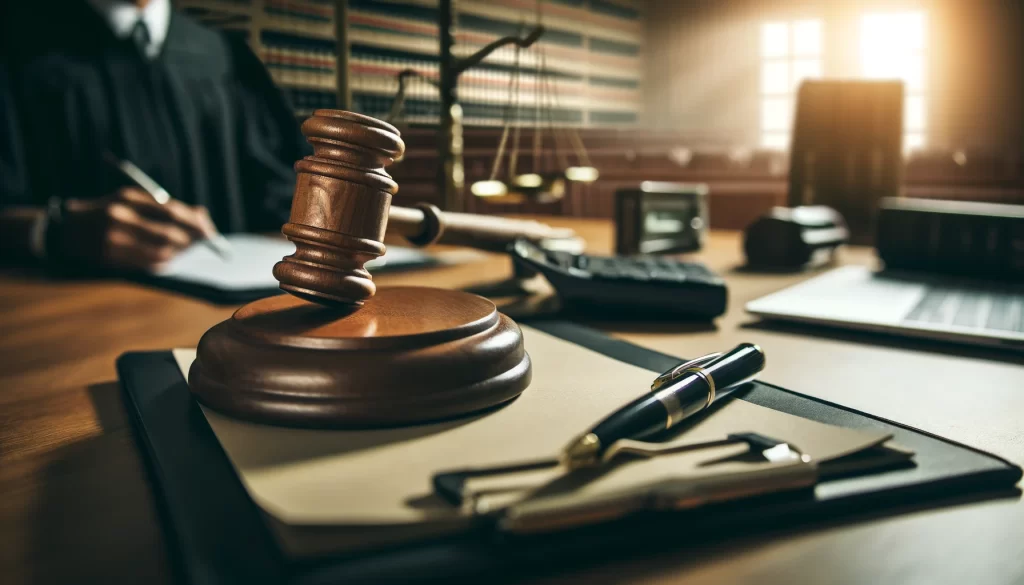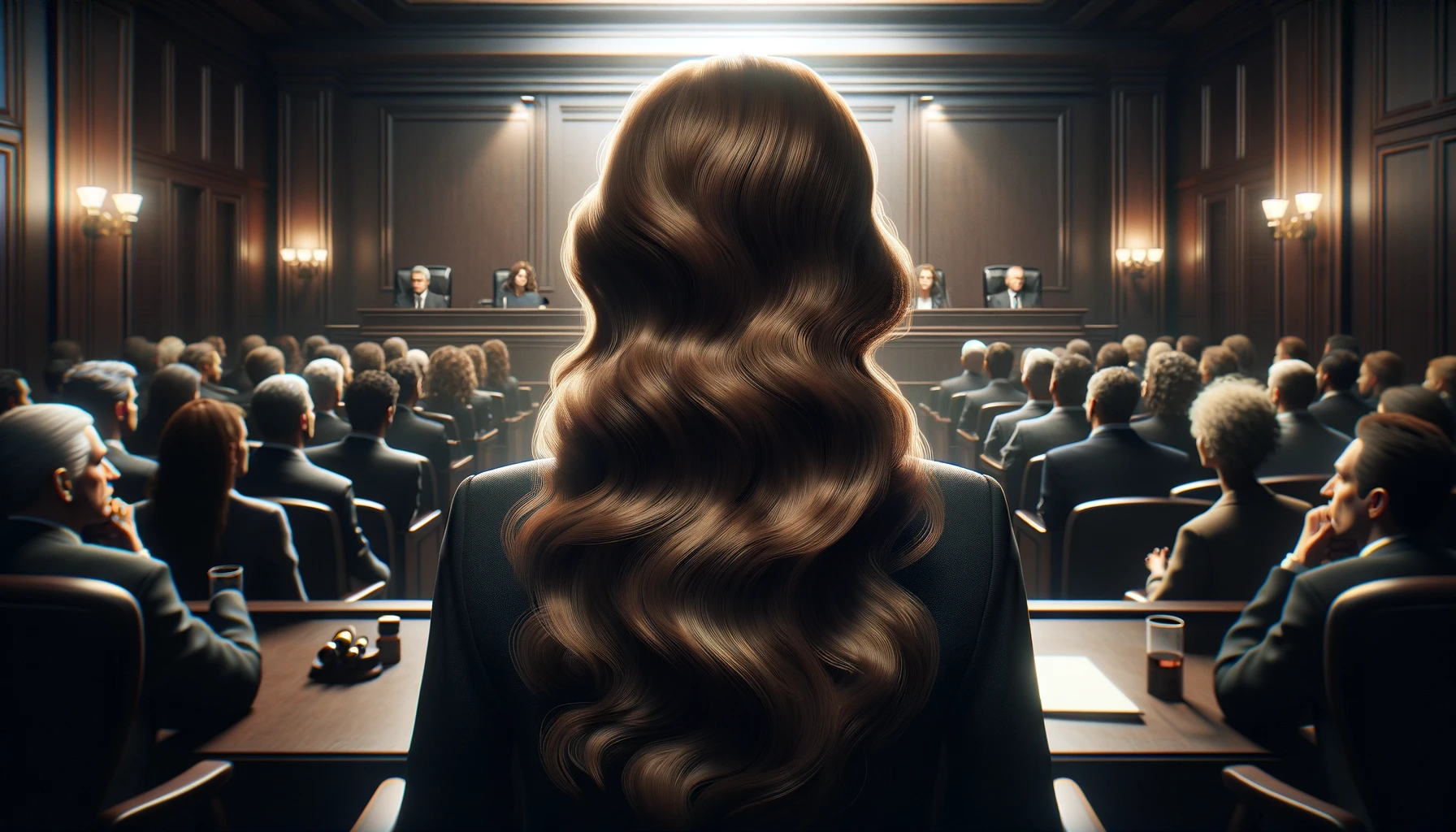During the third week of Donald Trump’s criminal trial in Manhattan, Hope Hicks, former press secretary and White House communications director for Trump, took the witness stand. Her testimony marked the culmination of another eventful week in a trial that has captured national attention. Trump faces charges of falsifying business records related to a payment meant to remain undisclosed. Here’s a detailed look at what happened during this week.
Hope Hicks Testifies
On Friday, the courtroom was filled with anticipation as Hope Hicks was called to testify. Hicks, who has been a close aide to Trump, was visibly nervous and emotional during her testimony, which lasted nearly three hours. She spoke about the fallout from the release of the “Access Hollywood” tape, where Donald Trump made controversial remarks about his ability to grab women by their genitalia because he was a star. Hicks described the immediate impact of the tape on Trump’s campaign, recognizing it as “a massive story” that would dominate media discussions.
The “Access Hollywood” Tape and Its Aftermath
The infamous tape, which was revealed just before the 2016 election, captured Trump discussing inappropriate behavior towards women. Although the judge, Juan M. Merchan, did not allow the tape to be played in court, a transcript was shown to the jurors, illustrating the controversial content. Hicks detailed the intense damage control that ensued within the campaign, emphasizing a simple yet clear directive in her email to Trump’s senior aides: “Deny, deny, deny.”

Allegations and Legal Wrangling
The trial also revisited allegations related to Karen McDougal, a former Playboy model, and Stormy Daniels, a porn star. Both claimed to have had past affairs with Trump, which he denied. Discussions and payments regarding these allegations became a central focus of the trial. Michael Cohen, Trump’s former lawyer, played a key role in these discussions, notably arranging a payment to Daniels, which is at the heart of the charges against Trump.
Election Pressures and Public Statements
Keith Davidson, a lawyer who negotiated deals for Daniels and McDougal, testified about the urgent negotiations that occurred as the 2016 election approached. The jury was also presented with Trump’s public statements and social media posts from the time, where he alternately acknowledged his remarks on the tape as “foolish” and attacked his accusers and political opponents.
Trump’s Courtroom Challenges
Throughout the trial, Trump’s own words from past speeches and statements have been used extensively by prosecutors to build their case. Trump, known for his confrontational style, criticized the proceedings and individuals involved, including Justice Merchan, whom he labeled as “crooked” and “conflicted.” This led to discussions in court about a possible gag order violation, resulting in a fine for Trump and a warning of potential jail time if such comments continued.
The trial is set to continue on Monday.
This article is based on the following article:

Background Information
By understanding these background elements, readers can better grasp the complexities of the trial and its implications in the broader context of American politics and law.
Who is Donald J. Trump?
Donald J. Trump is a businessman and television personality who served as the 45th President of the United States from January 2017 to January 2021. Before entering politics, Trump was well-known for his real estate ventures and his role as the host of the reality TV show, “The Apprentice.”
Political Context
Donald Trump ran for president as a Republican and was elected in November 2016, defeating Democrat Hillary Clinton. His presidency was marked by significant controversy, including his approach to immigration, healthcare, and foreign policy. Trump’s style of communication, particularly his use of social media, was a defining aspect of his presidency.
What are the Charges Against Trump?
In this trial, Donald Trump is accused of falsifying business records. Specifically, the charges relate to a $130,000 payment made to Stormy Daniels, a pornographic film actress who claims to have had an affair with Trump in 2006. The payment was allegedly made to prevent her from disclosing the affair during the 2016 presidential campaign. Falsifying business records can be considered a crime if done to commit or conceal another crime.
Legal Implications of the Charges
The charges against Trump are significant because they are the first criminal charges against a former U.S. president related to actions taken during his campaign. If convicted, Trump could face various penalties, including probation or prison time. The legal process in this case is also closely watched because it could set precedents for how former presidents can be held accountable after their terms.
Key People Mentioned in the Trial
- Hope Hicks: Former press secretary and White House communications director under Trump, known for her close working relationship with him.
- Stormy Daniels: Pornographic actress who claims to have had an affair with Trump in 2006. She was paid $130,000 as part of a nondisclosure agreement.
- Michael D. Cohen: Trump’s former lawyer and fixer who arranged the payment to Stormy Daniels. Cohen has publicly broken with Trump and has pleaded guilty to several charges unrelated to this case.
- Keith Davidson: Lawyer who represented Stormy Daniels and Karen McDougal in negotiations over their nondisclosure agreements.
- Karen McDougal: Former Playboy model who claimed to have had an affair with Trump and was paid for her silence by the publishers of The National Enquirer, a tabloid that supported Trump.
The “Access Hollywood” Tape
This is a 2005 recording where Trump made lewd remarks about women, boasting that he could grab women without their consent because of his celebrity status. The tape was released in October 2016, just before the presidential election, causing significant controversy and requiring a crisis response from his campaign team.
The Role of the Media
The media plays a crucial role in this trial, both as an element of the case itself and in shaping public perception. Publications like The Wall Street Journal and The National Enquirer are involved due to their reporting or suppression of stories related to Trump’s alleged affairs.
Importance of Understanding This Trial
For students and the general public, this trial offers a real-time lesson in legal processes, the role of the judiciary, and the accountability of public figures. It also demonstrates how personal actions and legal controversies can intersect with political careers, influencing public opinion and historical legacies.

Debate/Essay Questions
- Should former presidents have immunity from prosecution for actions taken during their tenure?
- Can legal actions against a former president be seen as politically motivated? How can the justice system mitigate such perceptions?
Please subscribe to Insight Fortnight, our biweekly newsletter!
